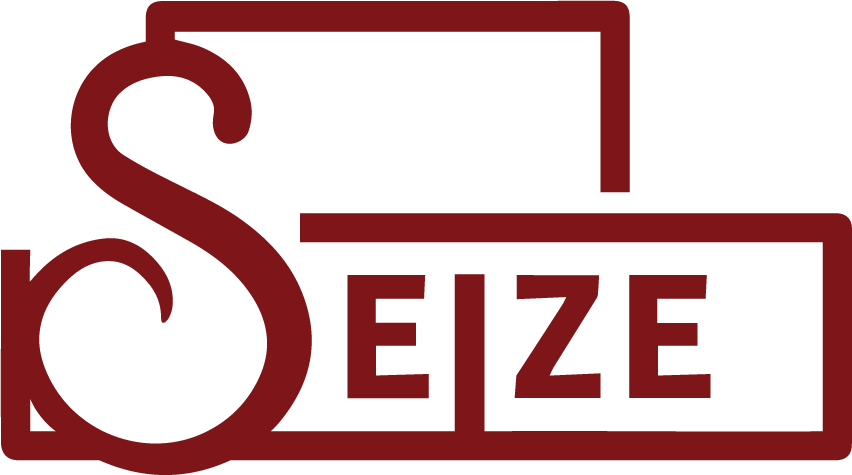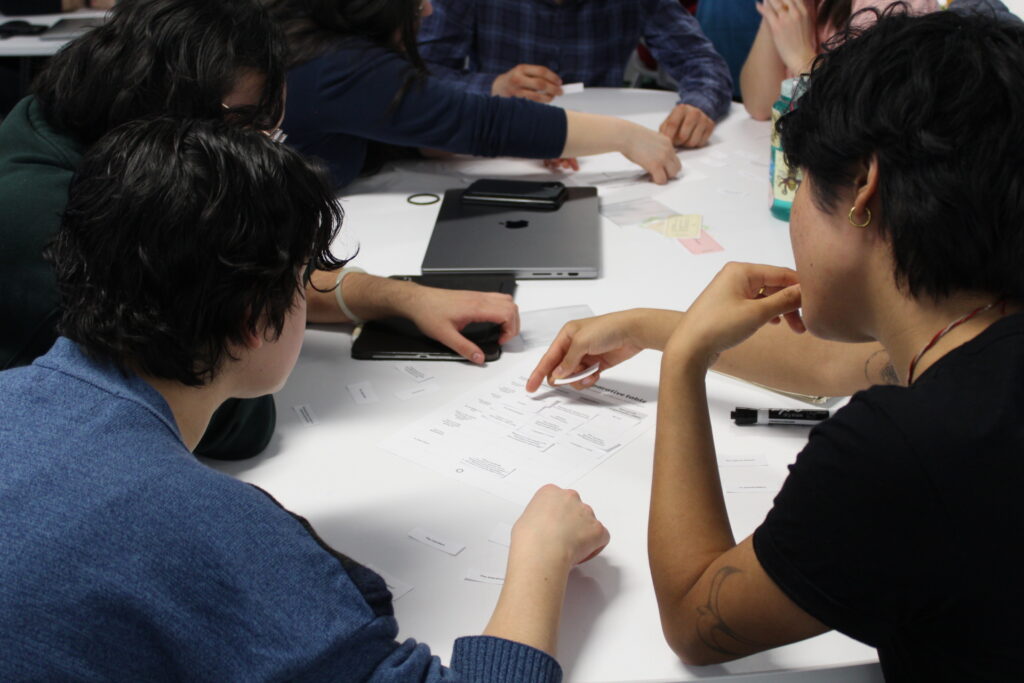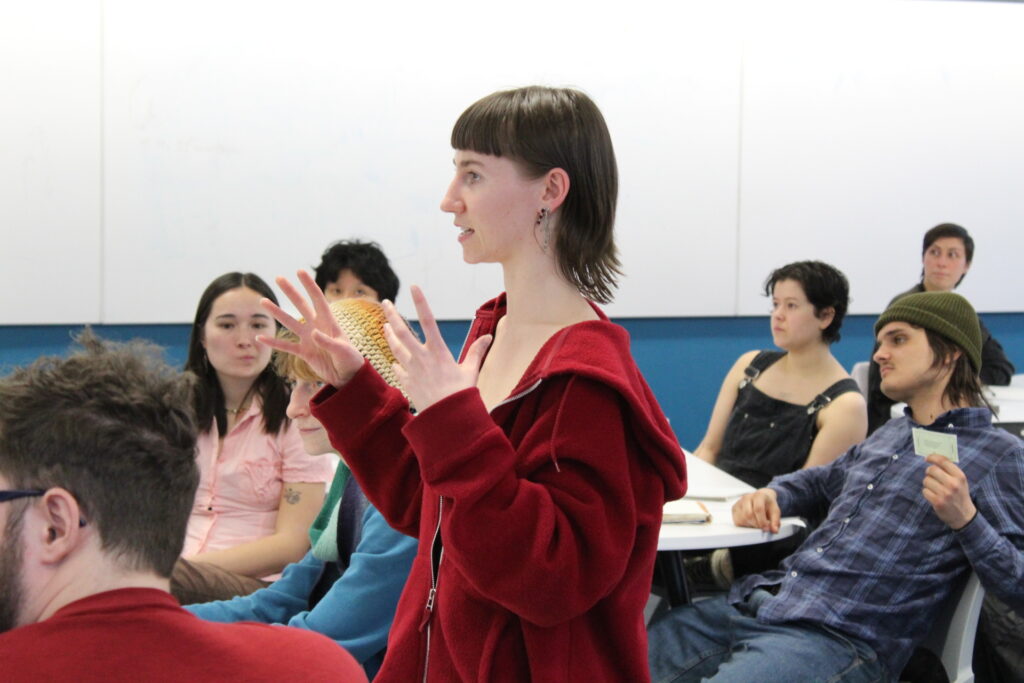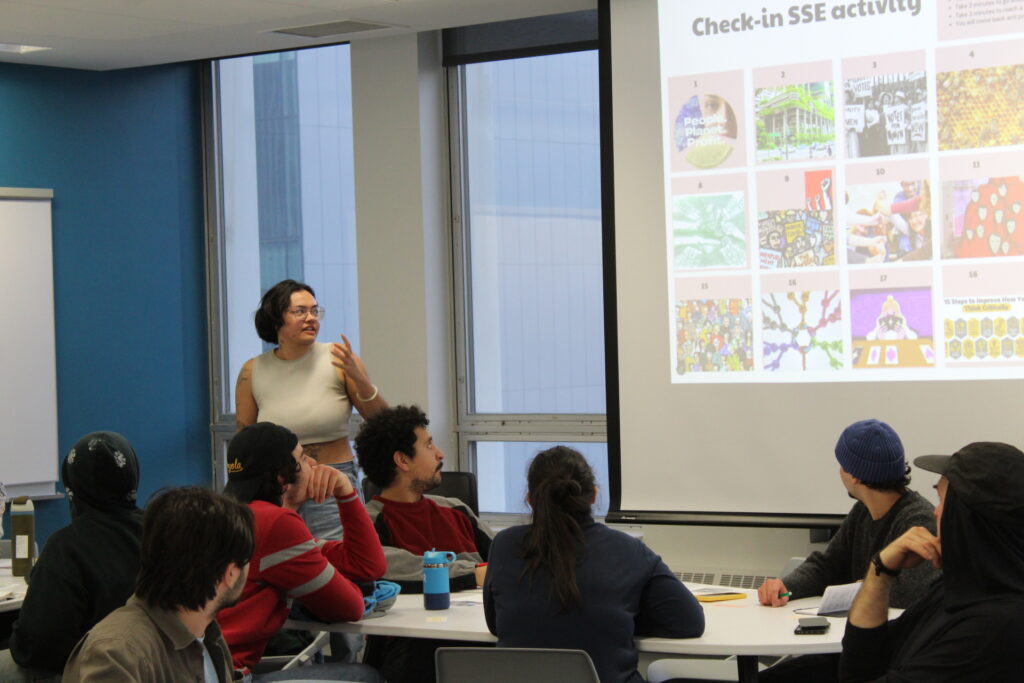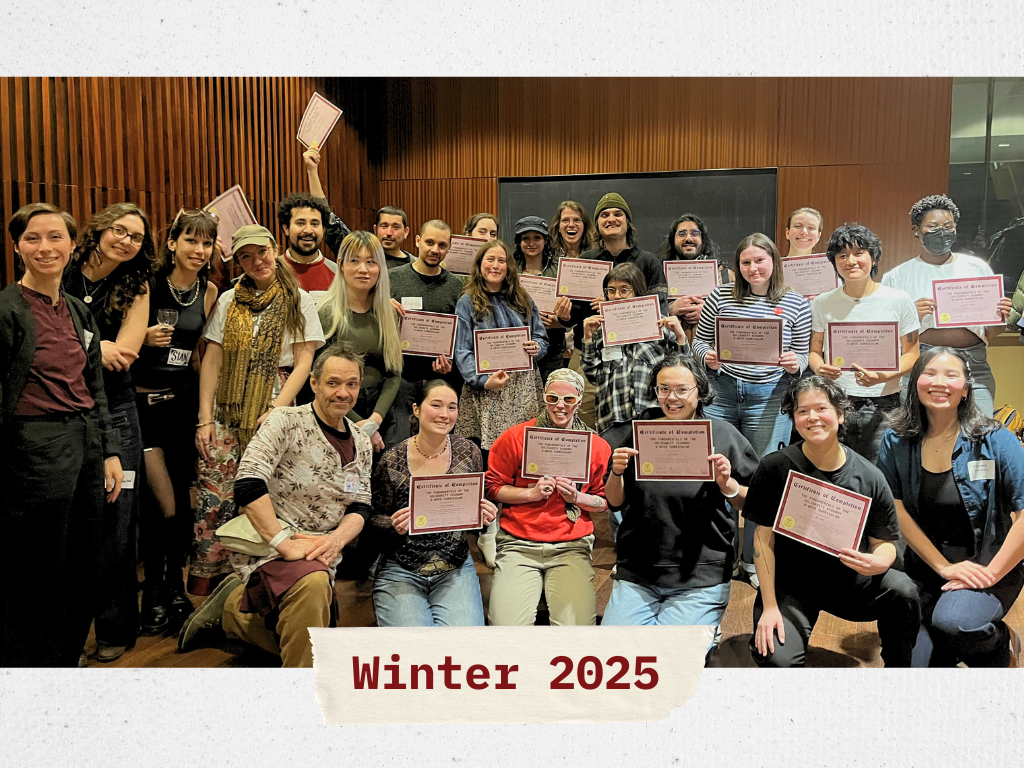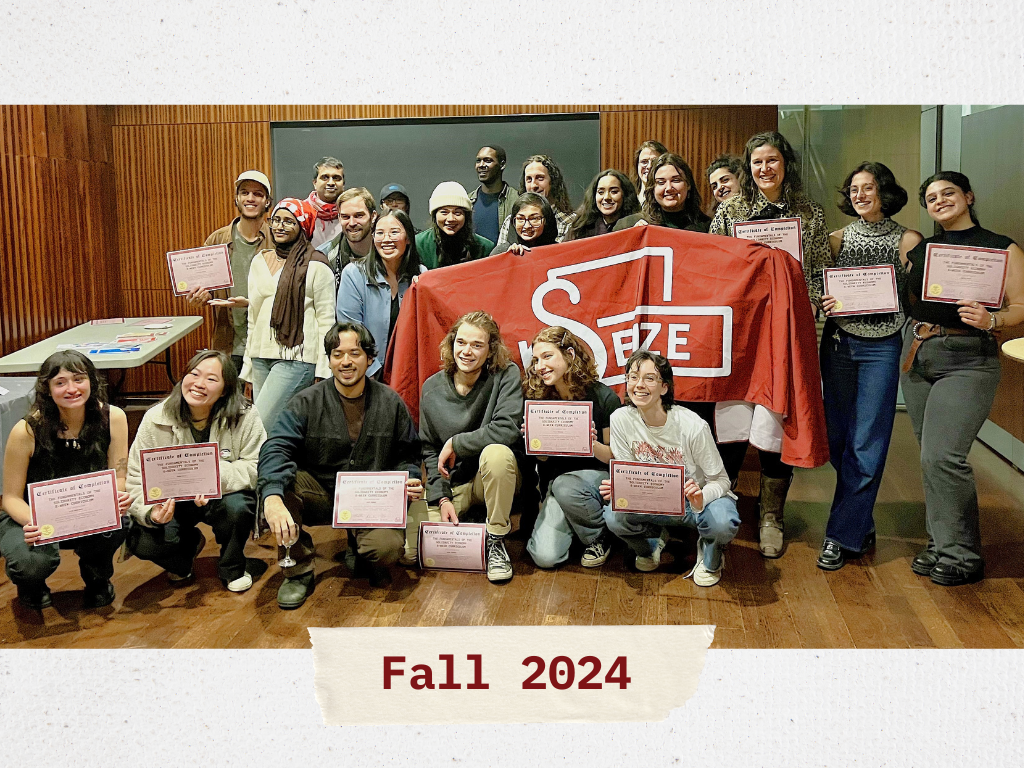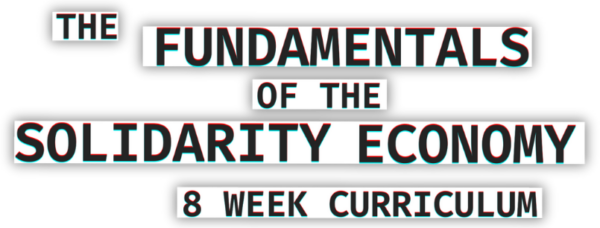
What is the curriculum?
This is not your average curriculum: The Fundamentals of the Solidarity Economy 8-week participatory curriculum will introduce you in the social solidarity economy, learning from both the theoretical and practical resources that you’ll need in order to challenge current systems of oppression.
Tired of paying rent to landlords? Want to improve working conditions for yourself? Make the world a greener, more sustainable place? Whether you’re hoping to empower yourself by gaining a better understanding of the solidarity economy, or looking for ways to get involved, our curriculum offers opportunities for both through facilitated sessions with experienced community practitioners. You will leave this program with a roadmap for your own participation in a global movement and an understanding of why we need solidarity to build effective social movements.
Who is it for?
The Fundamentals of the Solidarity Economy curriculum is for anyone with an interest in transforming the economy. Whether you’re just learning the term “solidarity economy”, or have been actively engaged for years, we welcome you to join us and other likeminded folks who dream of a different landscape that prioritizes people and planet, democracy, equity and inclusion.
About
Weekly on Thursdays 18:00-21:00
x2 per year, beginning in September and January
Free Meal every session
In-Person at Concordia Campus (virtual accommodations can be made, upon request)
Winter 2026 Cohort:
Begins January 29th 2026
Free for Concordia Undergraduates, $20 for community members, solidarity pricing available!
Contact:
Hannah Ostiguy Hopp
programs@solidarityeconomy.ca
Theory of Change:
We can no longer hide from the truth: Capitalist accumulation is driving ecological collapse and deepening inequality. Low wages, soaring prices, unaffordable housing, and cutthroat competition are not accidents; they are built into the capitalist system.
We believe that another economy is not only possible, it is already being built. The Fundamentals of the Solidarity Economy curriculum is designed to deepen critical class consciousness and inspire radical action. Rooted in popular education, the curriculum brings together community organizers, scholars, troublemakers, and SSE practitioners alongside peers who share a desire to take back the economy.
By registering, you will enter a transformative space that cultivates both collective analysis and practical tools to prefigure a world that centers humanity and the planet, while rejecting the systems of oppression that continue to confine us. We are not only imagining new realities; we are actively creating them together!
By completing the curriculum, you will leave with:
- The knowledge and networks to find your place within the social solidarity economy (SSE);
- A grounded understanding of the SSE, with the ability to draw on both global and local examples of how it is being enacted today;
- A certificate in Solidarity Economy Organizing;
- A lifetime user membership at SEIZE.
A Different Session Every Week:
Session information and resources below
In this introductory session, we will develop our understanding of capitalism and its origins - diving into its history and drawing on works by key social thinkers, historians, feminists, and ecologists - to better conceptualize the global climate crisis we are experiencing. Let’s analyze the link between capitalism and eco-destruction and then explore ways the economy can function when capital is not our main focus. Is that even possible?! Yes, yes it is.
A prerequisite to any justice-seeking endeavour is an acknowledgement and understanding of land, people, and their histories. This Indigenous-led session will help us understand the significance of colonial histories, calling for the recognition of Indigenous self-determination and cultural/political autonomy. Throughout this conversation, let’s discover what the #LandBack Movement is and what it means to be involved, whether you identify as Indigenous or as a newcomer/settler/immigrant on Turtle Island.
This delectable session will have you hungering for radical transformation! Let’s dive into the complexity of the capitalist food system, particularly its deep connections to other injustices including: migrant labour, climate change, and the alienation we feel to our food practice. Learn how to ground a food movement by prioritizing the environment and community needs through real life examples and discussion.
5 day work week. Minimum wage. Health benefits. How did we get here? Unions, of course! In this session, we’ll explore the labour movement and its intricacies through examples of large and small scale union successes. Understand the difference between solidarity and trade union organizing, and how either of them could fit within your action strategy! Whether you’re already part of a union or looking to shake up your workplace, we will identify common pitfalls and obstacles in labour organizing and practice effective tactics.
As rent and housing prices rise astronomically, we are witnessing higher rates of homelessness, gentrification, and further divisions between tenant and landlord classes. So, what can we do? Let’s talk about how we can confront the speculative real estate market with democratic systems like housing coops and community land trusts, and how tenant organizing leverages collective power to fight this unjust system.
If we want the solidarity economy to stick, we’re going to need to scale up! In this session, we will discuss how the solidarity economy can actively contest the foundations of the capitalist state to uproot and revolutionize a sustainable system. We will examine real world examples of what building power can look like: from grassroots activism to sector-level campaigning.
Imagine your favourite café: the atmosphere is warm, the staff know your name, and you even get a discount on your order. Now imagine you also get a say in what’s on the menu! sounds unusual, right? That’s cooperation in action.
In this session, we’ll explore the different types of cooperatives and nonprofits that make up the social solidarity economy, why they offer real alternatives outside of capitalism, and how democratic decision-making can extend into every aspect of our daily lives. We’ll also compare cooperative models with other business structures, highlighting how they can move beyond conventional economic frameworks toward human centric systems of solidarity.
Building on our foundation in the social solidarity economy, this session takes us deeper into the practice of collective governance. Why does shared decision-making matter? And how can we structure our organizations to truly meet community needs?
Through a series of interactive group challenges, participants will explore what democratic governance looks like in action while developing skills, strategies, and confidence to lead collectively! Along the way, we’ll unpack best practices for boards of directors, member-owners, and cooperative leaders navigating complex decisions together.
Testimonials
“I really enjoyed being introduced to the various people advancing solidarity programs in the city, the breadth of what can be done and meeting people doing the work.”
“I felt spoiled by the accessibility: the cost, the schedule, dual modes, meals, support. I cannot think of anything more important to learn about and appreciate the opportunity.”
“The program really fired up my spirit to pursue activism! I was waiting for a group like this, and it was so overwhelming to research on my own. Every day it was very impactful to learn from people's own experiences and stories, and I learned so much more than I could have expected.”
Meet some of the 200+ incredible humans that have graduated since 2018!
To graduate from the curriculum participants must complete 6 out of the 8 modules!
